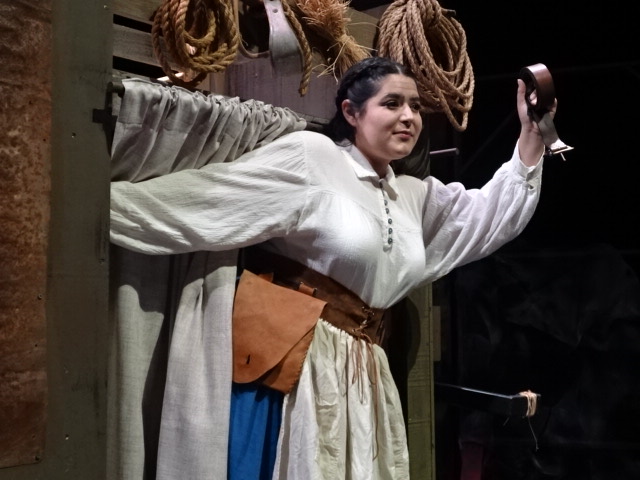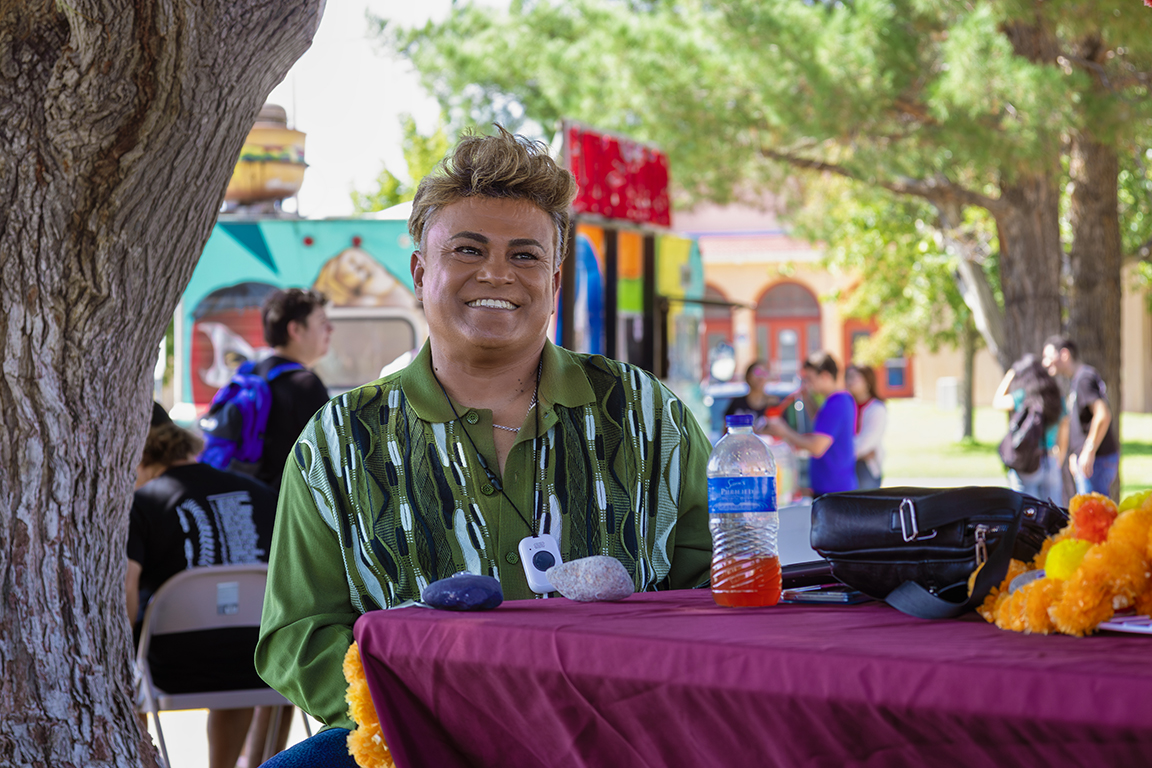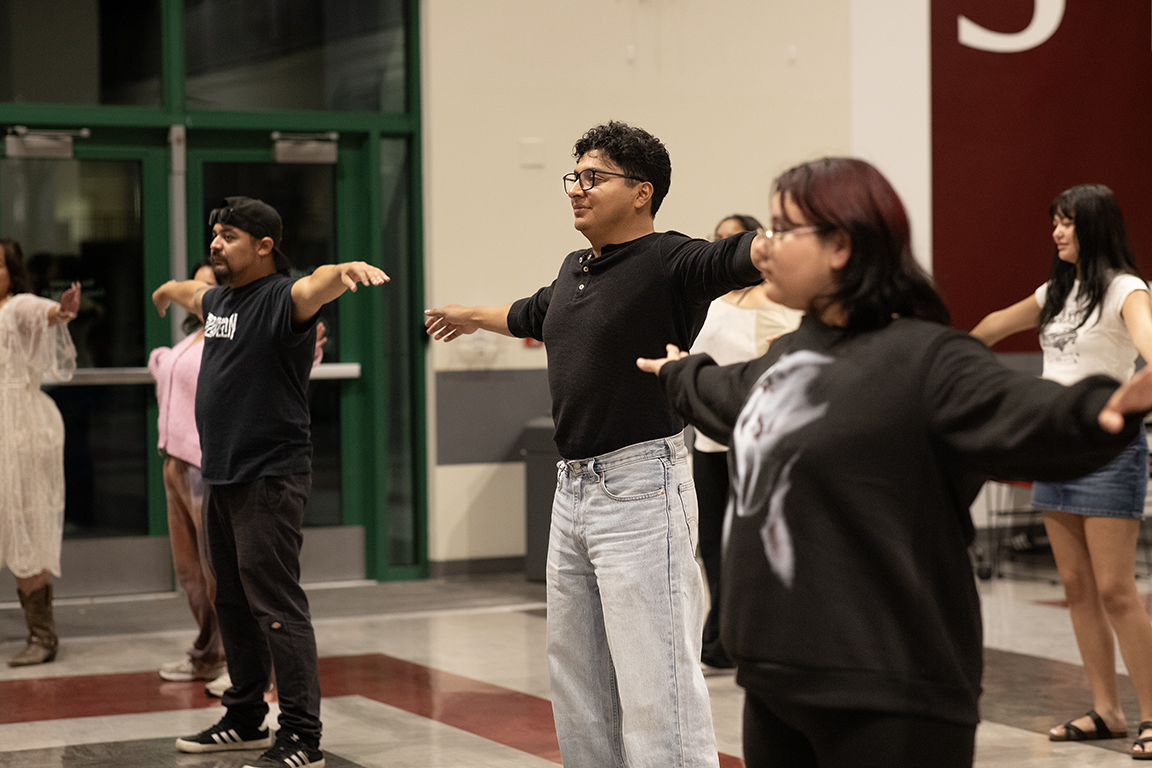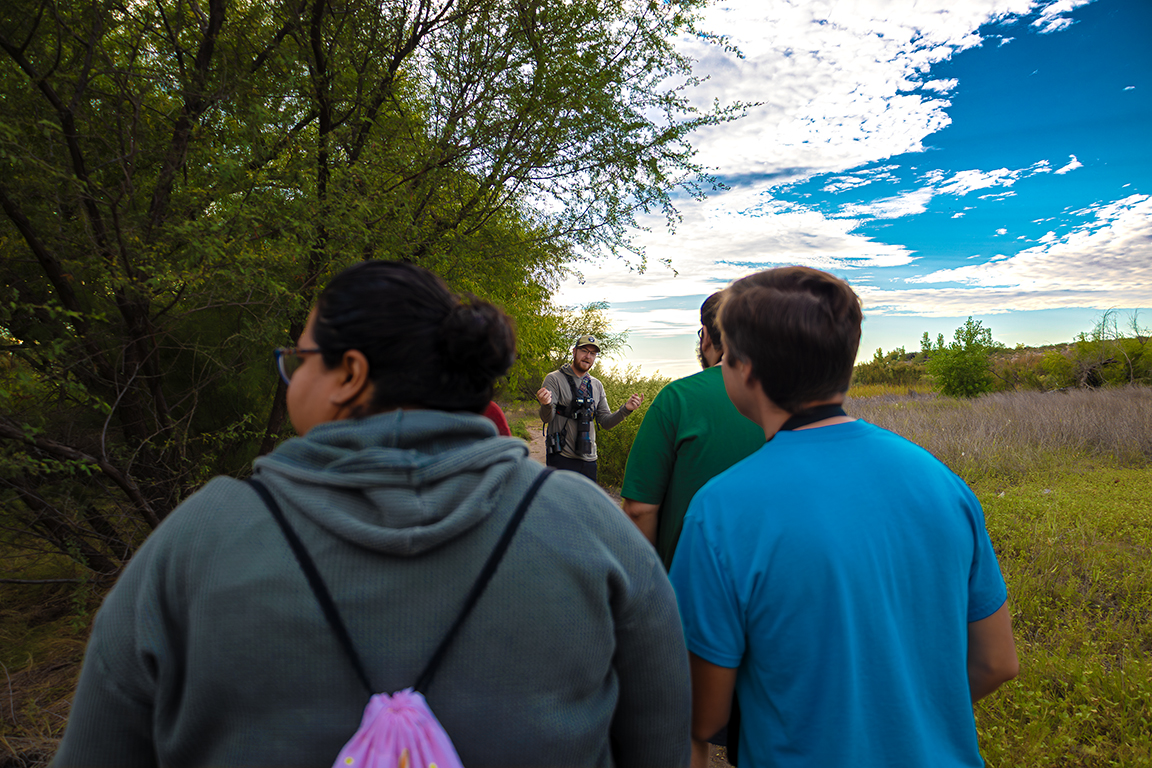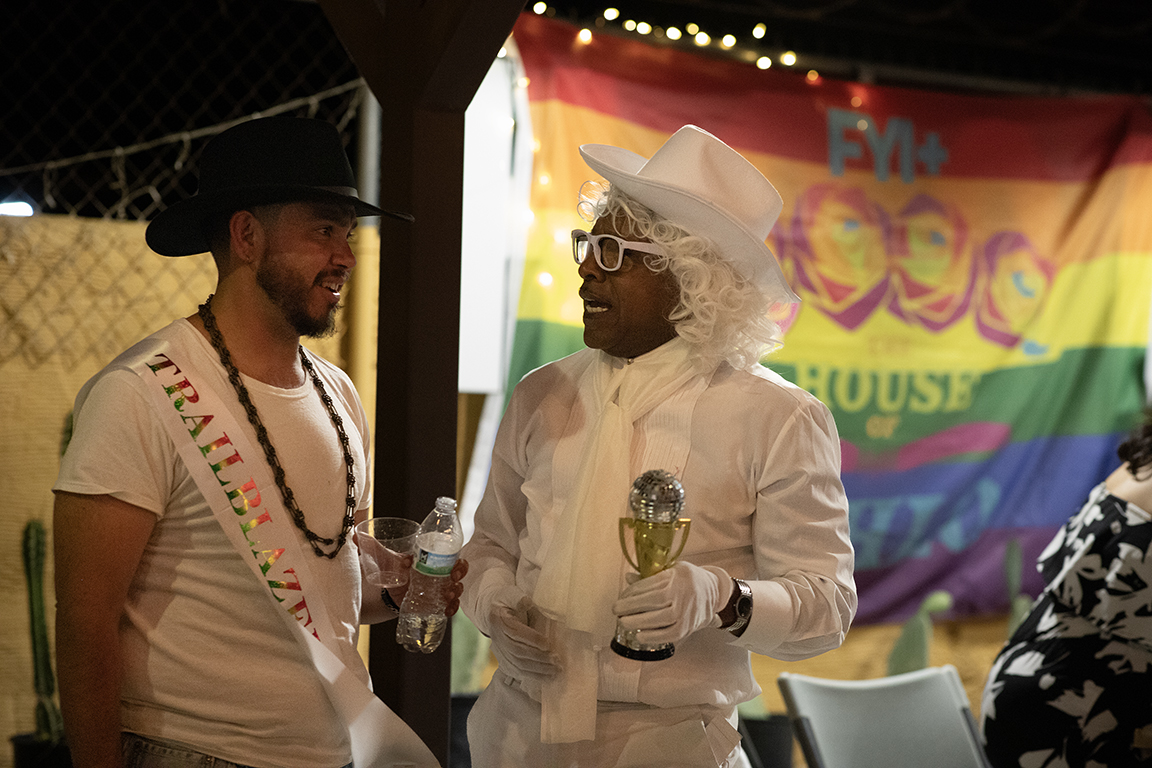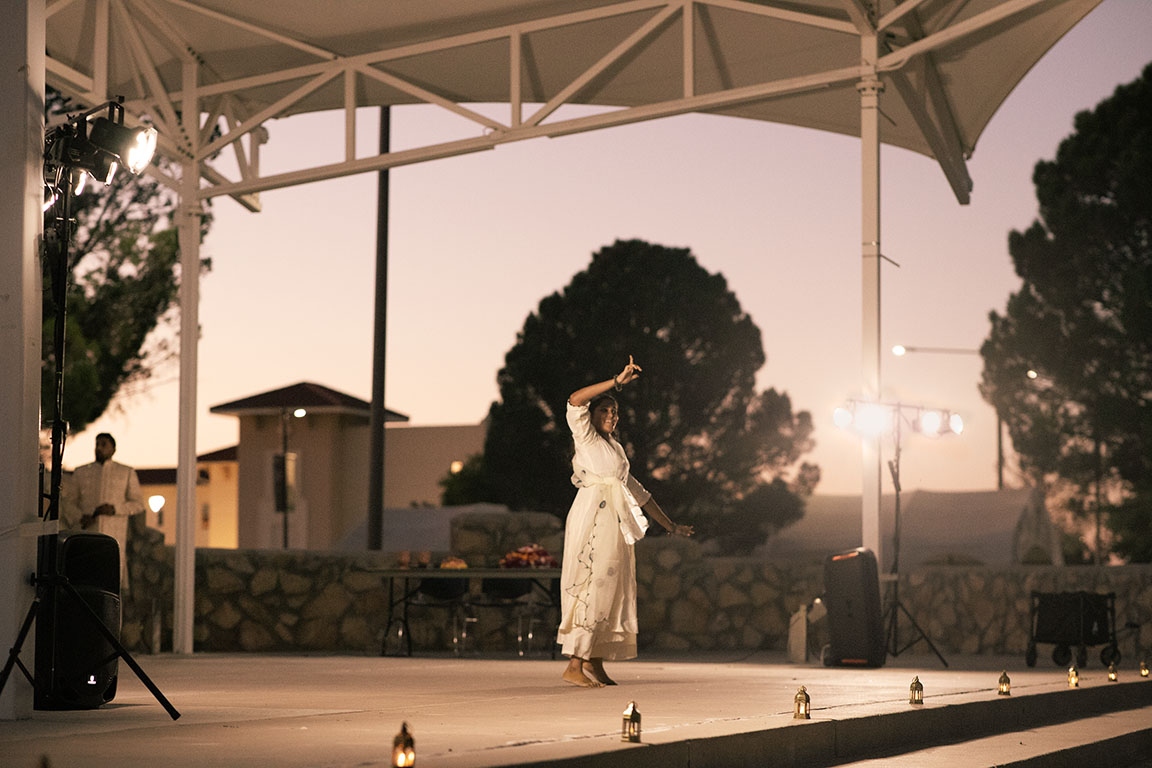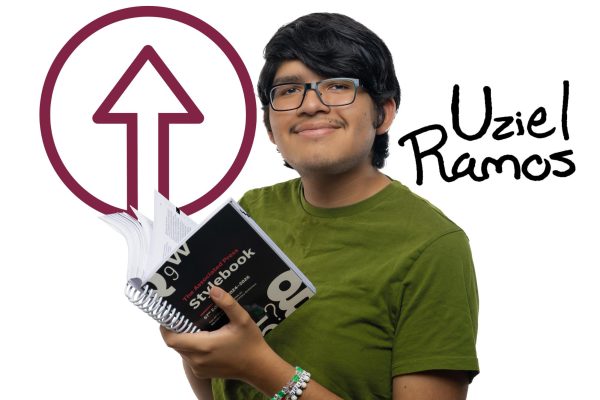NMSU Theatre and American Theatre Company brought audiences their final production of the Fall 2024 semester with ‘Mother Courage and Her Children.’ Directed by Associate Professor Larissa Lury, it is a thought-provoking play about the Thirty Years’ War that is best described as cautionary and relevant.
There was initial anxiety in tackling such a play and its themes, according to Lury. She said she was afraid of what it would be like to ‘live’ with a play about war. Because the play was written as a response against rising Nazi propaganda in the lead up to the Second World War, the timing of this retelling only emboldens its importance.
Athena McPeake portrays the namesake of the play, Anna Fierling, also known as Mother Courage, a deeply flawed protagonist whose greatest gifts are her adopted children. Mother Courage is sometimes critical of societal attitudes towards war. Nonetheless, she hardly minds profiting off the conflict, dragging along her three children, Eilif, Kattrin, and Swiss Cheese, and their business cart alongside battlegrounds of Central Europe.
This lifestyle constantly puts them at risk during the play, eventually resulting in Mother Courage losing her children. Perhaps the line that best describes her character is one belonging to a soldier at the beginning.
“Whoever takes, also pays.”
The play’s strongest argument is against nationalism. At the beginning of the play, recruiters defend Sweden’s cause in the war, using anti-Catholic rhetoric. To the characters, the differences between both sects of the church are evident and well-defined, but to any outside view, these distinctions are trivial at best.
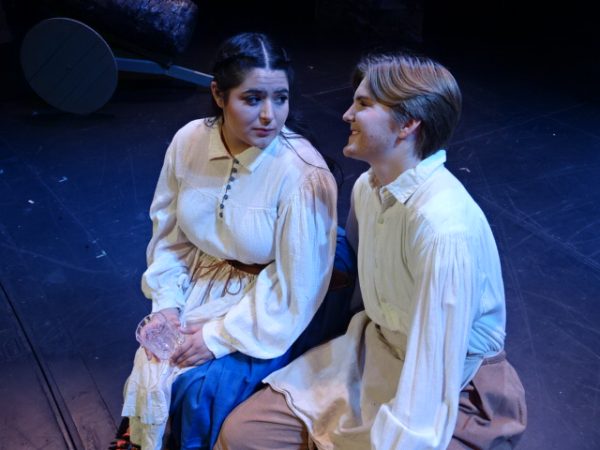
Militarism is another aspect of nationalism that is scrutinized. “To die in this war is a blessing, not an inconvenience.” is a line that aptly describes many of the characters’ views on war. It convinced Mother Courage’s son Eilif, played by Camren Vugteveen, to enlist. Throughout most of the story, his violence is celebrated as heroic. However, irony strikes towards the end of the story when Eilif’s fellow soldiers arrest him during a brief peace.
His crime? Pillaging a farm and killing its owner during those five or so minutes of peace. Despite committing actions that would have adorned him with medals during battle, his continuation of such behavior during peacetime was enough to warrant punishment. Before Mother Courage returned, Eilif was taken away and never seen again. The cook lies about his whereabouts to Courage, leading her to believe her son is still alive.
Mother Courage’s younger son, Swiss Cheese, is enlisted to manage the army’s finances, opting to not face direct combat. He plays a slightly more comedic role in this otherwise dark story. Nevertheless, his decision to associate with the war would bring his end, too, when he is captured by the enemy. When asked where a box of money was, he placed his loyalty to Sweden , leading to his execution, and Mother Courage loses another child.
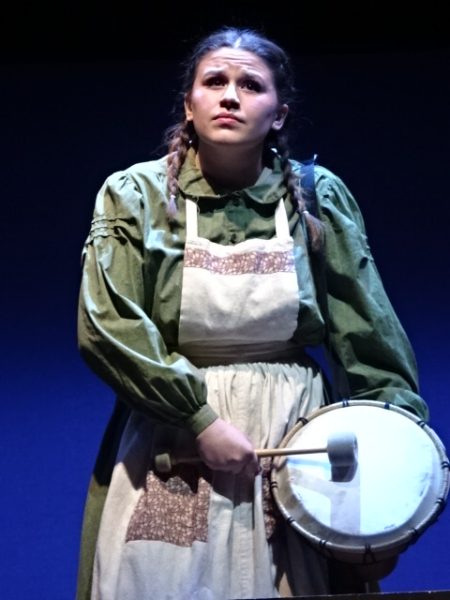
The tale also holds a message about mother-daughter relationships. Mother Courage’s daughter Kattrin, played by Katie Myers, is a mute girl who throughout the story is bombarded for being a “cripple.” The audience must deduce her emotionsthrough her physical movements, facial expressions, and the occasional grunt or shout.
Because of her disability, Mother Courage tries to shield her the most. At one point, she borrows some red boots owned by a family friend upon seeing them, her mother condemns Kattrin for looking like a “slut.” Although it stems from a place of protection, the play critiques how overbearing a mom can be on her daughter to conform to societal standards.
Tragically, Kattrin’s journey ends when, right before a Catholic army could massacre a sleepy town at night, she climbs on top of her mother’s cart, removes the ladder that brought her up, and starts to bang a drum to wake them up. She is shot and killed, but her heroism gave the peasants a chance to fight back against their attackers. It is an inspiring display of real bravery in a story full of greed disguised as bravery. But, alas, she is another tax Mother Courage pays for her participation in this vicious cycle.
It may be hard for anyone to find hope in a play like this; at a time like this. The theatrical piece ends with a song number and Mother Courage dragging her cart as she sets out once more to find Eilif. This final scene seems to paint a grim message for the audience, that the cycle of war, profit, and death will outlast all of us.
But it is that type of defeatism that the director, actors, and producers would like to discourage. It is a cautionary tale to motivate our fight against the forces that perpetuate the cycle. This story avoids all direct mention of contemporary politics and culture, yet it aims straight for its heart with its metaphors. It is not a very funny play, and it leaves its viewers figuring out how we can stop ourselves from devolving like Europe did for those thirty years.


